What Did Viking Age Arms and Armour Really Look Like?
Shields
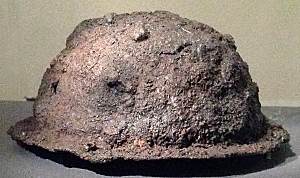
A historical shield from the Oseberg ship (left) and a 10th century shield boss found at Hemla, South Iceland (right).
Typical Viking shields were 80-90 cm in diameter. In theory, when a man made a shield for himself, he made it to match his size and fighting style. The shield had to be big enough to provide protection, but not so big that it is able to wear the man down or cause a slower defensive reaction.
Iron, domed bosses were at the center of the shield to protect the hand during combat.
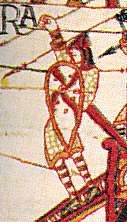 |
The Bayeux Tapestry (left) shows that kite shields were used at the end of the Viking Era. The shape of the kite shields was useful for an attacker who was on horseback. However, during the Viking Age most fighting was done on foot, and therefore these shields wouldn't have had much use.
Helmets
Probably the first thing that most people think of when hearing the word 'Vikings' is the stereotypical Viking helmet, as shown below. In reality, the Vikings' helmets didn't have intricate designs or horns. Viking helmets were fairly simplistic in comparison, using multiple pieces of iron that were riveted together. This is a helmet found at Gjermundbu in Norway (right). A similar style of helmet is shown below it.http://www.hurstwic.org/history/articles/manufacturing/text/viking_helmets.htm

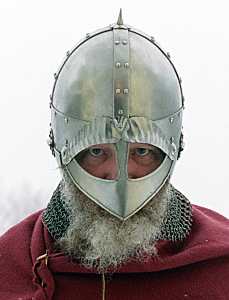 (Left) A stereotypical Viking helmet that many immediately think of when they hear the word 'Vikings'. http://www.historicalreplicas.net/Viking-Helmet.htm
(Left) A stereotypical Viking helmet that many immediately think of when they hear the word 'Vikings'. http://www.historicalreplicas.net/Viking-Helmet.htm (Right) A modern reproduction of helmets found from the Viking age.
http://www.hurstwic.org/history/articles /manufacturing/text/viking_helmets.htm
Swords
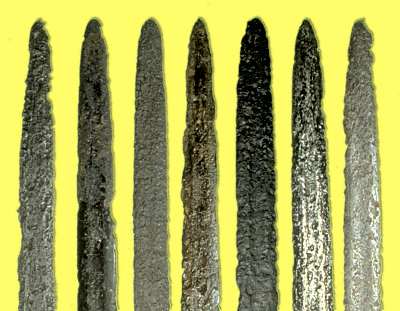 Swords were difficult to create, making them some of the most valuable and rare items within the Viking age. In Iceland, of the hundreds of weapons found in Viking age pagan burials only 16 of them are swords.
Swords were difficult to create, making them some of the most valuable and rare items within the Viking age. In Iceland, of the hundreds of weapons found in Viking age pagan burials only 16 of them are swords.
Swords were passed down from father to son for generations, and given names, and could have been the most expensive item that a man owned.
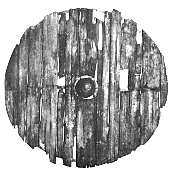
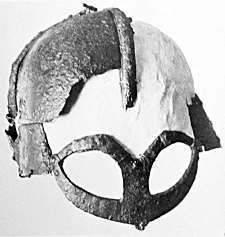
Very well done Dylan. You are using primary source well. Don't forget to source your final section.
ReplyDelete